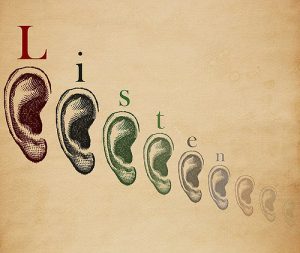“Argument” is certainly an art form. It’s a manly art but a practically lost one. The problem with ‘argument’ is that people, especially in relationships, conflate it with bickering. Bickering, griping, complaining, etc. are not arguing. A proper argument is defined as: “a reason or set of reasons given with the aim of persuading others that an action or idea is right or wrong”. Done properly, a good argument is good for the soul. Why, then, do so many people claim that they hate to argue?
There’s an anti-intellectual undercurrent in society that’s always been there. That anti-intellectualism comes with the unintended consequence of a population that largely doesn’t understand logic. They don’t teach logic in schools outside computer science and philosophy courses when it should be part of the curriculum starting in middle school. Kids taught philosophy and logic early on develop better problem-solving skills and are better able to cope with unfamiliar situations. Given this knowledge, why are logic and philosophy college electives at best?
Why bother with logic?

You use it all the time whether or not you know it. The reason you don’t fill up the sink then dunk a glass into the water to fill a glass is that doing it that way is so obviously illogical, you don’t need to consider it. Your brain is hard-wired to understand basic logic. It’s when things aren’t so obvious that a little training is in order.
Some very smart people have put some deep thought into how thinking should work and have come to some useable conclusions. Did you know that there are a whole bunch of things people think on a daily basis that are flat wrong just in the way the thoughts are constructed? For instance, it was once assumed that if you left meat out, it would turn into maggots. We now know that maggots are the larval stage of flies who laid their eggs on the meat, not a result of the rotting meat. Why did people think that, though? It seems reasonable that when a thing happens every time certain conditions are met, the conditions caused that thing. Sadly, as in the above case, the idea that meat spontaneously generates maggots is based on too little information.
Without further ado, here are some don’ts and do’s.
The Dont’s
When it comes to argument and logic, there’s a pile of things that you should keep in mind. This is a partial list of the things you should not do. They are in no particular order.
-
Don’t assume you’re right and your opponent is wrong
- If you enter into an argument convinced that you are fully correct and no information can possibly exist that shows you to be wrong, you aren’t doing it right. It’s vital to remember that no matter how deeply you believe a thing, you could still be wrong. You could be wrong in part and right in part. Remember that fact, about everything.
-
Don’t become emotional or take it personally
- If you are or you become emotional in an argument, you have lost. There are people who argue purely from emotion. They are the easiest people to defeat in an argument. They are also examples of the people in number 5.
-
Don’t identify with your arguments
- If you wrap your identity up with your arguments you’ll never be able to follow the rule below this one. You are not your arguments or your beliefs and your beliefs should always change on better evidence.
-
Don’t argue without the willingness to change your mind
- This is very closely related to number one but it deserves its own point. If you have no willingness to change your mind you’re already disingenuous. If all you want to do is make people think as you do, you are lying by even opening the discussion. You could be wrong, accept the idea that your opponent could be right.
-
Don’t argue with a person who is prone to violence
- If you know someone has a violent temper, don’t bother arguing with them. If you challenge a worldview, their thought process will inevitably turn to them defending their views with their fists. Don’t bother (unless you can take them, I guess).
-
Don’t argue with someone who doesn’t want to argue
- This should be obvious but we all know that guy who wants to argue no matter what and will argue about things he doesn’t even believe just to argue. Don’t be that guy.
The Do’s of Argument
-
Do know the common mistakes you could make
- There are many things you can say that are wrong out of the gate. They’re either based on a flawed premise or draw a flawed conclusion. There are arguments you can make that tend to be wrong because they are logically fallacious. It pays to know how logical fallacies work before you argue. You’ll be amazed how easy fallacious arguments are to spot, and how frequently you make them. It’s vital to learn what the most common ones are.
-
Do genuinely try to understand your positions
- This is closely related to number four. If you don’t understand your own opinions, you cannot possibly understand your opponents. If you don’t understand your opinions thoroughly they shouldn’t be your opinions. Usually, if you have an opinion you didn’t think through, it came from someone else. It’s not even your opinion and you’re merely parroting.
-
Do be willing to concede a good point
- When your opponent makes a fair point, acknowledge it. A point you had not considered can mean the difference between remaining ignorant and improving your position. The whole point of an argument is to make you a better man. If you argue with people who never make good points, you’re not getting better.
-
Do listen with the intent to understand instead of the intent to respond
-
Do practice
- It’s in your best interest to understand that you will not always win. If you’re doing it properly, your mind will change. Spend time discussing things with people who disagree with you. If you like arguing online visit the Change My View Reddit board. Take a course on debate at your local community college. Organize a discussion about a subject with a friend or two. Listen to the You are Not So Smart podcast. Practice makes the master.
Conclusion
 This is an ultra-basic introduction to the concept. It’s not just for arguing with your friends and colleagues but also for settling marital or relationship disputes. It’s most important to remember that emotion has no place in logic. ‘What about the children?!?!’ is not an argument. Personal attacks on your opponent are not arguments and their attacks on you shouldn’t be taken personally.
This is an ultra-basic introduction to the concept. It’s not just for arguing with your friends and colleagues but also for settling marital or relationship disputes. It’s most important to remember that emotion has no place in logic. ‘What about the children?!?!’ is not an argument. Personal attacks on your opponent are not arguments and their attacks on you shouldn’t be taken personally.
Let’s bring back the art of conversation, discussion, disagreement, and argument. It makes us better men.













